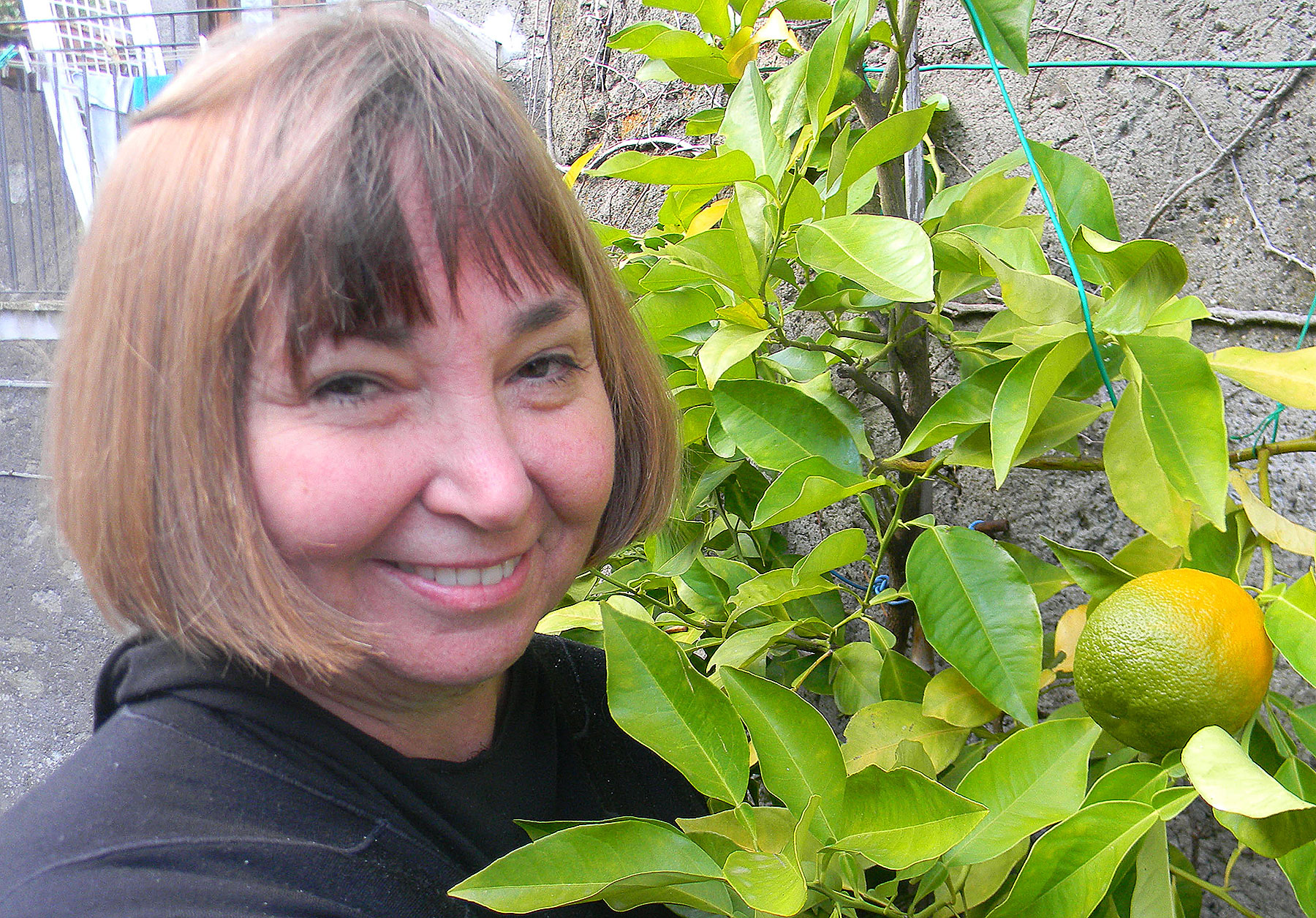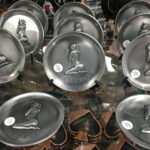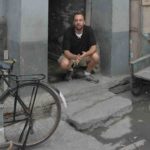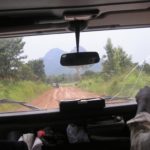Linda Lappin, novelist, travel writer, writing teacher, and creativity coach, is the author of The Soul of Place: A Creative Writing Workbook: Ideas and Exercises for Conjuring the Genius Loci (Travelers’ Tales 2015). She has published three prize-winning novels: The Etruscan, a gothic tale, Katherine’s Wish, about the life of Katherine Mansfield, and Signatures in Stone, winner of the Daphne Du Maurier Award in Suspense and Mystery Writing for the Best Mystery of 2013. Her work has appeared in The Kenyon Review, the Literary Review, Prairie Schooner, Rain Taxi, and the Writers’ Chronicle, among others. She holds an MFA in Creative Writing from the University of Iowa and is a former Fulbright Fellow to Rome. She is a lecturer in English language and literature at the Sapienza University of Rome.
How did you get started traveling?
I first started traveling — mentally — in my childhood. My parents had relocated to East Tennessee from Arizona before I was born, and our house was full of curious objects — Navajo rugs, Kachina dolls, and Mexican masks, not the typical furnishings of a house in Appalachia. These objects, along with the glossy pages of Arizona Highways, and the tales my father told of tumbleweed, scorpions in shoes, and rattlesnakes created in my mind the vivid picture of a distant, if dangerous, place and an exotic way of life that I found irresistible. Early on I was bitten by the conviction: “Real life is elsewhere.” “Elsewhere” turned out to be Italy, and not the Southwest. I came to Rome on a Fulbright in 1978, and have been living here ever since, with Rome as my base, and traveling throughout Europe.
How did you get started writing?
I have written poetry and stories since I was a child. There is a photo of me, four-years-old, fresh out of the bathtub, typing a poem on the typewriter in my parents’ bedroom. I think I must have been fascinated by the technology of the keyboard, an instrument which has played a huge role in my life. I am a writer by nature. Ideas, words, stories, voices are always running through my mind, and I have to make time to capture them and get them down.
What do you consider your first “break” as a writer?
Publishing your first “anything” — poem, essay, story, book — is a milestone, because it gives you confidence that your own work is worth pursuing, despite the inevitable rejection and frustration that you will encounter along the way. Going on from there, producing and publishing a second or third poem, essay, or book, is a small miracle. I don’t earn my living as a writer. I’d like to, but I don’t, and so I am still waiting for that “big break.” However, looking back, I can say that a major breakthrough came after attending the Ploughshares Writing Workshop in the Netherlands many years ago. I wasn’t new to workshops, I had an MFA from Iowa. I was living in Italy at the time, working on a novel, but was out of touch with the writing world. I really needed to reconnect to other writers in English, because you can’t work in a vacuum. So I went off to a workshop and it jumpstarted my career. Firstly, I met a writer and writing teacher there, Thomas E. Kennedy, who became a sort of mentor for me. I also made contacts with editors who invited me to send work to their magazines. A few years later, I was able to place my first novel thanks to someone I had met at that workshop. Things changed after that.
As a traveler and fact/story gatherer, what is your biggest challenge on the road?
I am what Lawrence Durrell once called “a residence writer.” I tend to write about places where I have settled for a while, going deeper into the culture, getting to know people there, absorbing the soul of place, and letting myself be changed by it. That has its merits, but it makes getting a fresh perspective on a place a little harder because you no longer see it with a newcomer’s eyes. Recapturing impressions vividly is a not just a question of style but of stance.
What is your biggest challenge in the research and writing process?
At home, when I am doing research and writing, the biggest challenge is balancing the different parts of my life — family, writing in different genres, foreign language study, being a householder, having a day job as a teacher, social relationships, pursuing other interests that feed my writing but aren’t directly related to it. Also, all that sitting isn’t good for you. It is one of the pitfalls of the writer’s life.
What is your biggest challenge from a business standpoint?
The biggest business challenge I have is marketing books, promoting my writing and my soul of place workshops without letting these tasks overwhelm the rest, and without losing sight of my inner goal as a creative person: to live fully, now.
Have you ever done other work to make ends meet?
I have taught English at an Italian university for many years and have worked as an adjunct professor for study abroad programs in Italy, teaching creative writing, memoir, and travel writing. I have worked as a freelance translator of academic writing, screenplays, and fiction; as an editor, radio announcer, interpreter, and a dialogue coach for actors. I have also organized workshops, retreats, and writing events in Europe for a creative arts association and writing center www.pokkoli.org.
What travel authors or books might you recommend and/or have influenced you?
I have a background in literature, so I tend to be attracted to writers who have combined travel and fiction: Shirley Hazzard, Paul Bowles, D.H. Lawrence, Lawrence Durrell, and John Fowles are writers I keep coming back to, re-reading and savoring them in different periods of my life. One book on my bedside table for years was My Journey to Lhasa by Alexandra David Neel — exotic, adventurous, humorous at times, thrilling, tinged with Buddhist philosophy, yet also with the wisdom of the west: if you desire something strongly enough, you can achieve it. Never give up!
What advice and/or warnings would you give to someone who is considering going into travel writing?
First, I would suggest they check out the many resources available: There are some wonderful websites — including this one — and books providing information, instruction, and ideas for aspiring and established travel writers. I highly recommend Tim Leffel’s Travel Writing 2.0 for tips concerning the business side of travel writing and its ongoing transformation. Don George’s Lonely Planet Guide to Travel Writing, covers both the craft and business of travel writing. TransitionsAbroad.com has several pages of travel writing resources and also sponsors three contests. Travelers Tales has published a long list of travel writing collections and guides to every corner of the world that every budding travel writer should study, along with a lovely guide to journaling by Lavinia Spalding, Writing Away. My own book from Travelers Tales, The Soul of Place, offers itineraries for exploring environments familiar and foreign in search of inspiration, stories, and imagery.
Further advice: In practical terms, there are endless opportunities to publish, especially unpaid travel or food-related articles. At the same time, paying markets are shrinking and those that remain open are either heavily commercial or dauntingly competitive. To write for the former you must keep up with changing guidelines, industry trends, and strike the right “tone”; for the latter you must not only be highly professional but somehow unique, and you need to acquire a name (and also contacts), which takes time, talent, and dedication. To an aspiring travel writer, I’d say: decide what your main objective is — writing as a profession, vocation, passion, as a means of self-knowledge or self-expression — and plot your course from there. Sometimes these options come together in the same writing project or the same phase of life, other times they pull in different directions, but all need to be satisfied. Read as much and as voraciously as you can, poetry, classics, fiction, travel, history, social and natural sciences. Learn a foreign language or two. Keep traveling and investigating, and don’t neglect places you think you already know — like your own neighborhood — as sites to explore.
What is the biggest reward of life as a travel writer?
Travel writing brings a double, and sometimes, triple, reward. Firstly, the traveling itself — with all the discoveries, personal growth, and knowledge it brings, the relationships you make and the sensations you experience as a citizen of the greater world — is one reward. Secondly, when writing, you get to live all that all over again. Lastly, sometimes, magically, the writing takes on a life of its own and creates its own world, which no longer belongs to you, the writer.





